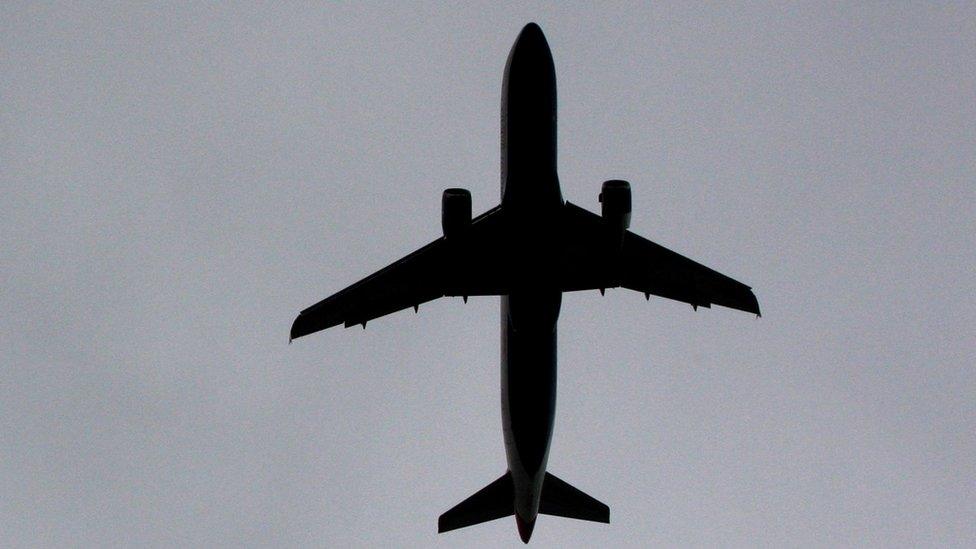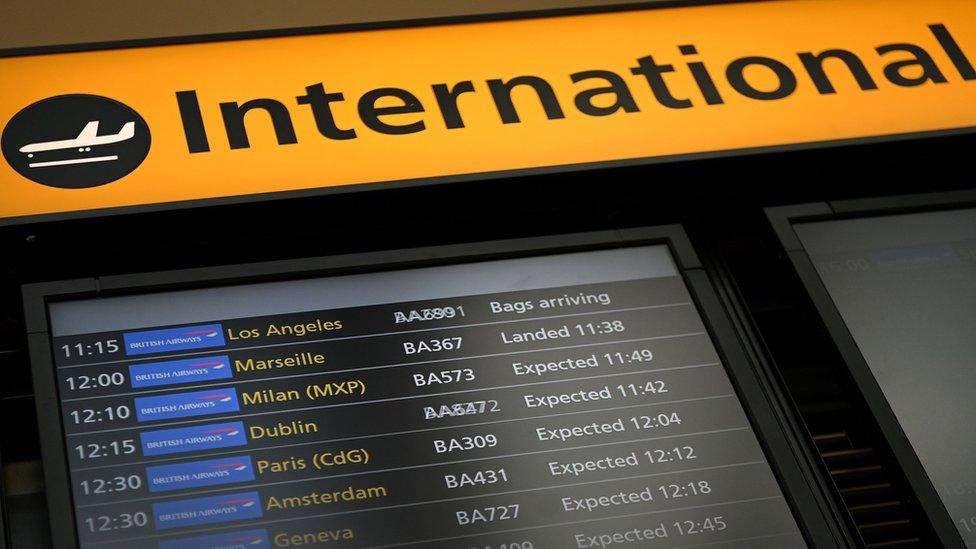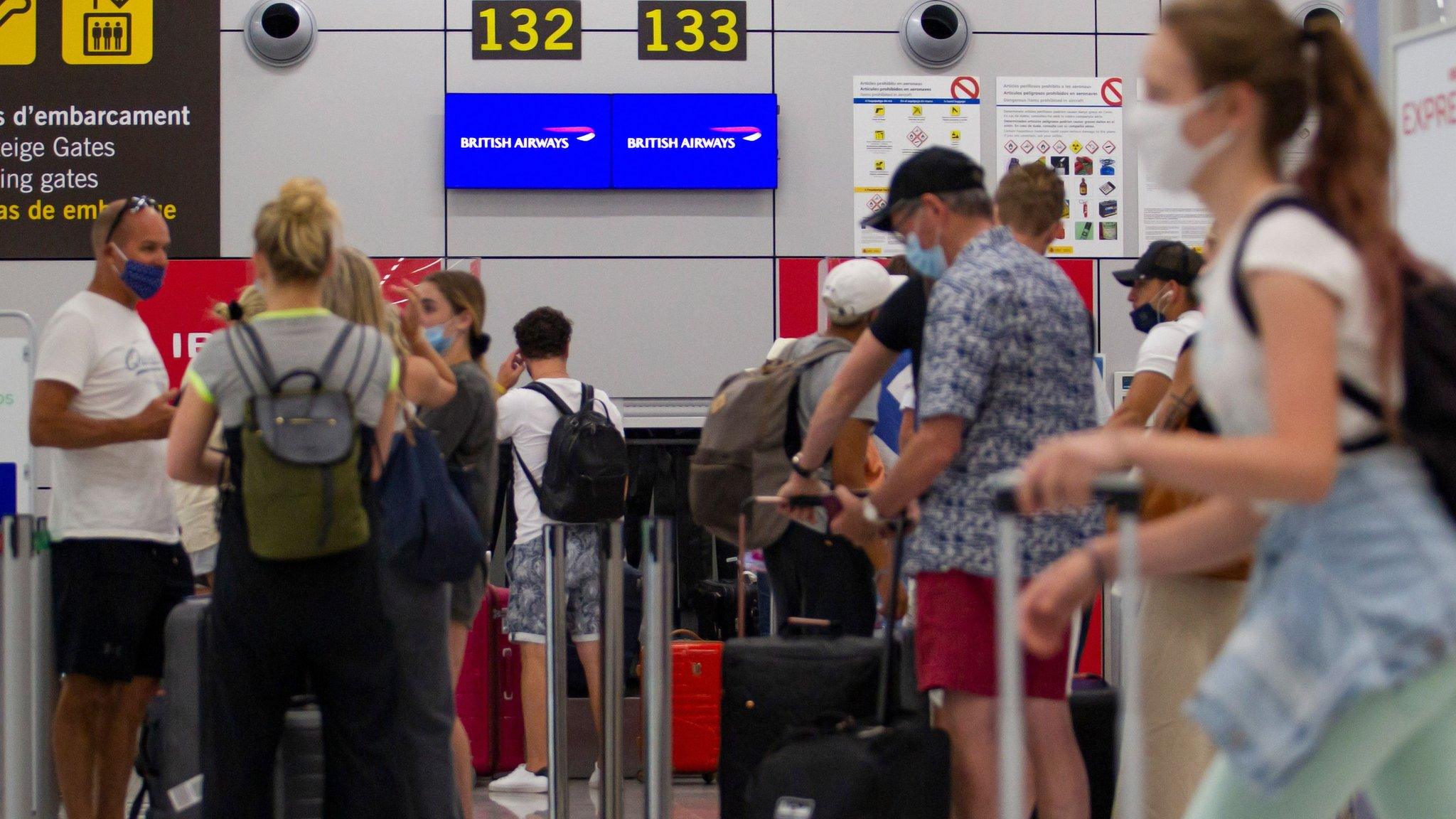Coronavirus: Foreign Office repatriation help 'too slow'
- Published
- comments

Efforts by the Foreign Office to bring home more than a million Britons at the start of the coronavirus pandemic have been criticised by MPs.
The Foreign Affairs Committee said the repatriation operation had been too slow, whilst advice had been misleading or confusing.
It also said the government had been too reliant on commercial airlines.
The Foreign Office said it had mounted a "large-scale" effort to get people during an "unprecedented" crisis.
Around 1.3 million British nationals were travelling abroad at the height of the pandemic earlier this year.
In a report,, external the cross-party committee said despite some "notable successes," the Foreign Office was "outpaced by events" as the pandemic unfolded.
Too many UK citizens were not provided with support they should "reasonably expect to receive," it added, whilst "little was done" to provide financial support for those facing hardship while stuck abroad.
It added that although emergency loans were offered, awareness of them was low and people were initially advised to borrow money from friends and family.
The committee also criticised communication efforts, adding that some were on the phone for "long periods of time" and whilst others' calls were not answered.
It said respondents to a survey it had conducted had found official advice "outdated or unhelpful," whilst four in ten were unable to contact their local embassy.

MPs said the Foreign Office had relied too much on commercial flights.
Conservative MP Tom Tugendhat, who chairs the committee, said many people had received advice that was "confusing, inconsistent and lacking in compassion".
At other times, he added, advice was "misleading and outdated, and, in the worst cases, entirely absent."
"The lack of accurate, helpful information meant many felt forgotten and as though they had been left to fend for themselves," he said.
The committee said the government had "placed too much reliance" on flights provided by commercial operators to get people home.
It found that countries which had instead opted for charter flights, such as Germany and France, had been able to bring their citizens home quicker.
It added that whilst the UK had chartered 186 flights for 1.3m nationals, around 260 flights were chartered by Germany for 260,000 citizens.
The committee said that by the end of June, only £40.5m from a £75m fund to pay for charter flights had been spent.
A Foreign Office spokesman said: "Against the background of local lockdowns and international flight bans, the team worked tirelessly to keep commercial routes open as long as possible, while bringing stranded Brits home on 186 charter flights from 57 countries and territories.
"We have retained a repatriation team for the remainder of the year and boosted investment in our consular services and crisis management to ensure we are further prepared to support Brits caught up in the pandemic."

HOLIDAYS: Will I get a summer break?
FACE MASKS: When should you wear one?
TESTING: Who can get a test and how?
LOOK-UP TOOL: How many cases in your area?
GLOBAL SPREAD: Tracking the pandemic

- Published27 July 2020

- Published5 July 2022
